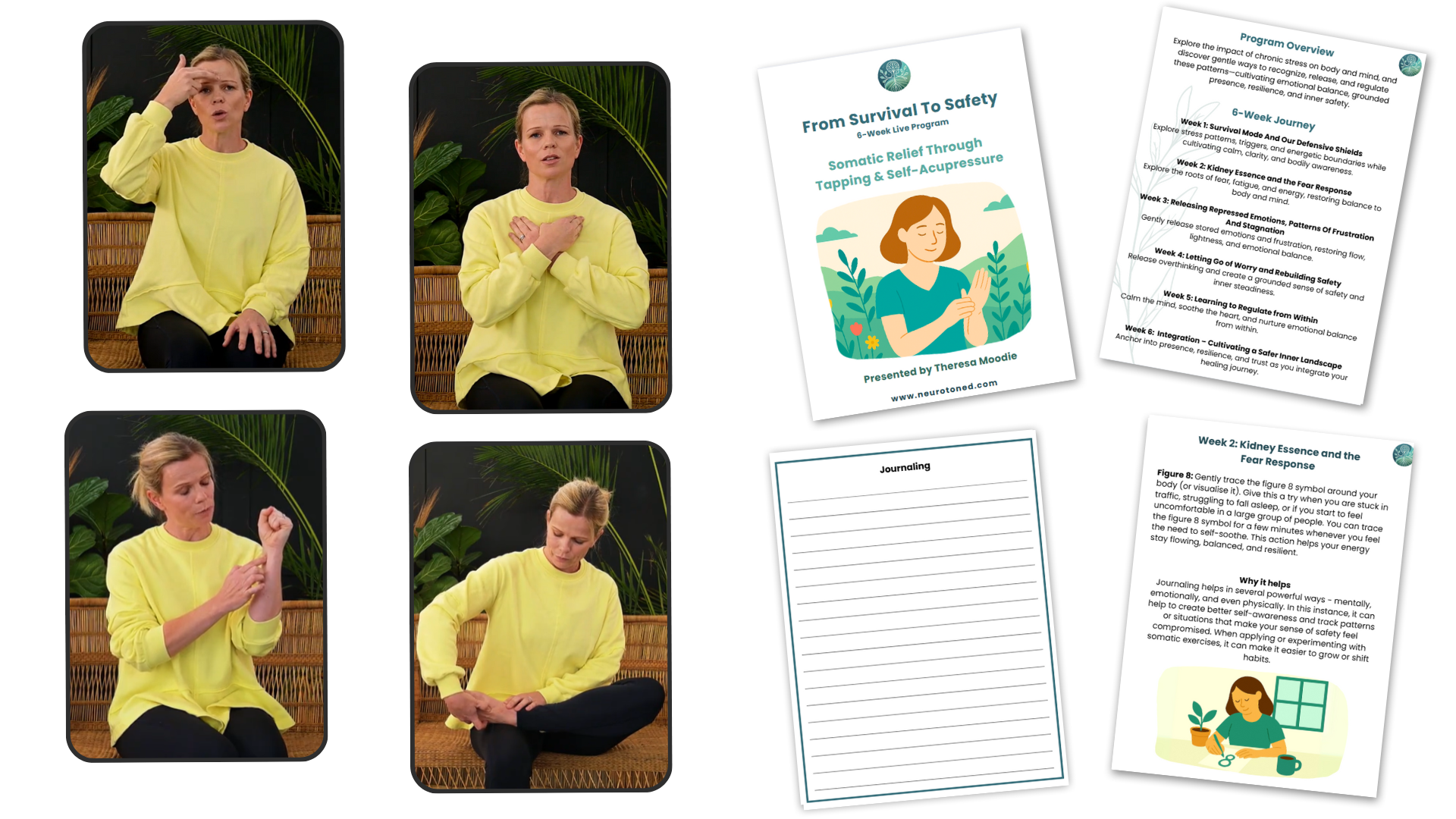
How To Regulate Your Nervous System Before Hard Conversations
Hard conversations can stir tight chests, shaky hands, or thoughts that won’t slow down.
Nothing about this means you are weak or dramatic. It often means your body remembers old moments where conflict felt unsafe.
If you want a soft starting point, the Stress Loop Quiz can help you understand which protective pattern your body uses most often.
Many people notice their internal alarms get louder right before a vulnerable moment. It can feel similar to that wired, on-edge state described in “Why do I always feel ready to jump out of my skin for no reason?” Or the stomach flips explored in “Butterflies In Your Stomach: Trauma Or Anxiety?”
These reactions make sense. You are preparing for something tender.
Let’s walk through gentle tools you can use before hard conversations so your system has a better chance of staying steady.
A clear, simple answer
Nervous system regulation before a hard conversation means helping your body shift out of survival mode so you can respond instead of react. Gentle breathing with longer exhales, orientation to your environment, grounding touch, and slow pacing can help you feel more stable. Even a two minute reset can reduce overwhelm and support clearer communication.
Why your body reacts so strongly
For many people, interpersonal stress was paired with real danger or unpredictability in the past. Even if the conversation is safe now, your body sometimes responds as if the old pattern is repeating.
This might look like:
- Heart racing
- Tight throat
- Shallow breaths
- Feeling numb
- Trouble thinking
- Urgency or emotional flooding
A trauma-informed lens helps this make sense. You can read more about that in “What is Trauma Informed Care?”
Your body is trying to protect you, not sabotage you.
Your experience may also connect to the link between physical tension and emotional pain, described in “The Connection Between Psychological And Physical Pain.”
A. Let your body know this moment is safe enough
A simple orientation practice:
- Look slowly around the room.
- Notice five things that feel neutral or pleasant.
- Let your breath drop slightly deeper without forcing it.
- Feel your body supported by the chair or floor.
- Whisper to yourself, “I am here. I am allowed to go slowly.”
This helps your nervous system update what is happening right now.
If you need structured support with this, the practice in “Orienting Practice: A Gentle Way to Calm Your Nervous System” can help.
B. If you tend to go into fight or flight
For a wired, activated state:
- Place one hand on your chest and one on your belly.
- Extend your exhale a little longer than your inhale.
- Drop your shoulders.
- Let your jaw release.
- Try a soft hum. It vibrates the vagus nerve and may help settle your system.
If deep breathing makes you more anxious, you are not alone. This can happen when your system is already overloaded. You can find alternatives in “Why Deep Breathing Makes Me More Anxious, And What To Do Instead.”
C. If you tend to freeze or go numb
For a collapsed or blank state:
- Apply gentle pressure through your legs with your hands.
- Wiggle your toes.
- Sit more upright without forcing anything.
- Bring awareness to your feet on the floor.
- Hold something textured or warm.
This encourages your system to come back online slowly.
It pairs well with the guidance in “Why Your Body Goes Numb During Stress.”
D. Plan your pacing
Many people rush through hard conversations because their body feels unsafe.
Going slowly is not avoidance. It is regulation.
Simple pacing phrases:
- “I want to do this well. I may pause sometimes to stay grounded.”
- “If I get overwhelmed, I may need a moment and then I can return.”
- “I care about this. My pace might be gentle.”
This protects connection rather than urgency.
E. Prepare your exit ramps
Exit ramps help you pause without abandoning the conversation.
You can try:
- “I want to keep talking, but I need a moment to settle myself.”
- “Can we slow down for a minute so I can stay with you?”
- “I’m feeling overloaded. A short pause will help me stay present.”
This approach fits the resilience-building ideas described in “Building Resilience To Withstand The Storms of Stress.”
A 7 Day Micro-Plan to prepare your body before tough conversations
Day 1: Two minutes of orientation.
Day 2: Three minutes of longer exhale breathing.
Day 3: A gentle humming practice.
Day 4: Grounding touch through your legs or belly.
Day 5: Write one sentence about what feels hard for you in conflict.
Day 6: Practice one pacing script aloud.
Day 7: Rehearse staying steady for five breaths during an imagined conversation.
These tiny practices help your body feel safer approaching emotional moments.
Common sticking points
“My body reacts before I can think.”
This is common. You are not failing. Your survival system is fast. Regulation helps slow things down.
“I freeze and lose my words.”
Try grounding through your legs or feet. Stronger physical cues help thaw the freeze.
“I slide into people pleasing.”
That is an old protective pattern. A two second pause before answering can interrupt it.
“I get overwhelmed and cry.”
That is your system reaching capacity. Slowing the pace protects you.
“I feel ashamed for needing regulation.”
This is human. Your nervous system is doing its best with what it learned.
If you want to learn your personal patterns, the Stress Loop Quiz can guide you.
FAQs
1. Why do I panic before conflict even when the situation is safe?
Your system may be reacting to past relational stress. It tries to protect you from pain it remembers.
2. Will regulating myself make the conversation easier?
It may reduce overwhelm, support clearer thinking, and help you stay connected.
3. What if the other person is reactive?
Your regulation helps you stay grounded, but it does not mean tolerating mistreatment.
4. Can I regulate quietly during the conversation?
Yes. Slow breaths, grounding your feet, or softening your jaw can be done subtly.
5. What if I always fawn or people please?
Small pauses create space for your real needs to emerge.
6. What if I get overwhelmed anyway?
You are allowed to take breaks. You can return when you feel steadier.
More Gentle Reads
-
A simple, ten-minute nervous system reset you can use when emotions feel sharp
-
How to support your system when conflict brings up panic-like sensations
-
A clear, friendly guide to understanding your protective states
Disclaimer: This article is educational and not medical advice. It is not a substitute for professional care. If you have health concerns or feel unsafe in conflict situations, consider speaking with a qualified healthcare or mental health professional.
Discover Your Vagal Tone
Find out how dysregulated your nervous system is and get your personalized roadmap to feeling calm, energized, and in control


